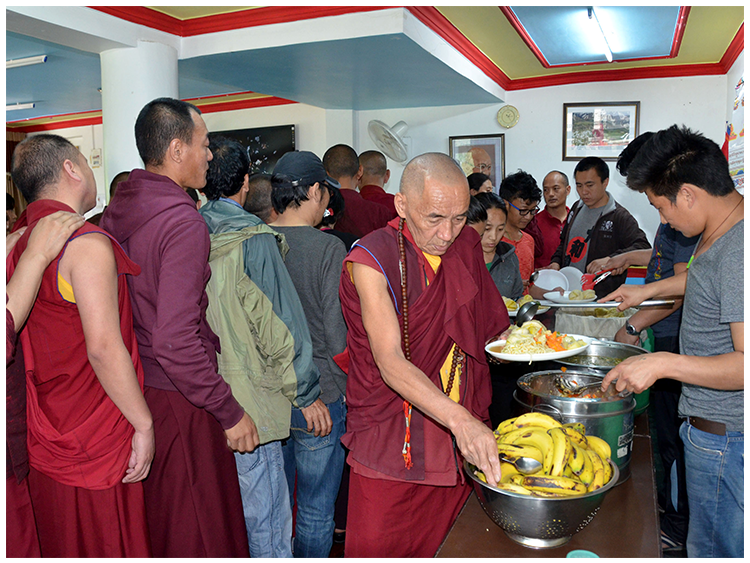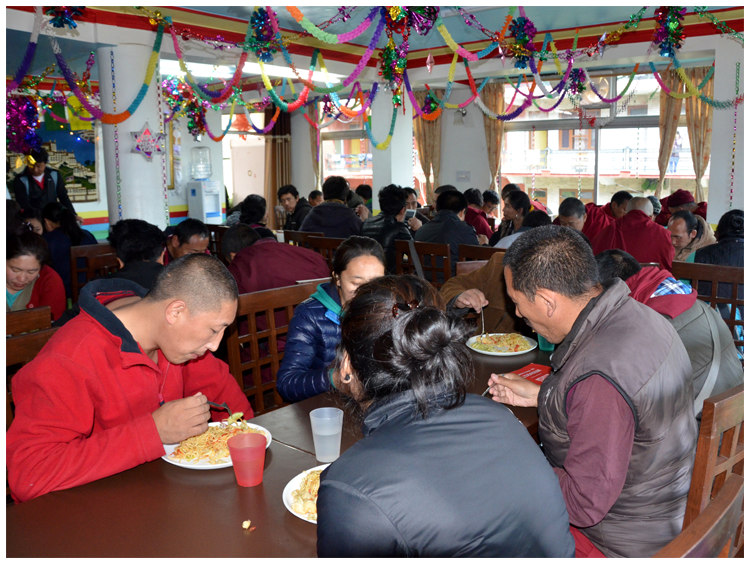 Lha is currently seeking funds to support the full operation of its Community Soup Kitchen initiative for the duration of one year and to support the development and implementation of a self-sustainability plan for the project.
Lha is currently seeking funds to support the full operation of its Community Soup Kitchen initiative for the duration of one year and to support the development and implementation of a self-sustainability plan for the project.
High numbers of refugees living in poverty result in a large scale inability to buy nutritiously dense food. This contributes to increased incidences of chronic lifestyle diseases, such as type 2 diabetes, gastritis, liver cirrhosis, heart disease, and hypertension.
According to a 2009 Census, 44% of Tibetans living in Dharamsala and surrounding settlements suffer from one of these chronic lifestyle diseases.
The Lha Community Soup Kitchen aims to alleviate cases of malnutrition in Dharamsala by offering nutritious, low-cost or free meals to 40-50 Tibetan refugees daily. So far 451 needy people have benefited from the Soup kitchen project in the last eight years since its inception.
In addition, Lha will empower refugees to make healthy choices about the food they eat by offering nutrition education classes at the soup kitchen.
Furthermore, by starting a job training program to assist refugees in obtaining employment in the service or restaurant sector, Lha will simultaneously combat unemployment in this community.
 In June 2013 a survey of 47 users of the community soup kitchen was administered in order to assess the effectiveness of the services being provided. 46 of the 47 respondents identified as being unemployed and only 6 (13%) of those surveyed receive any kind of financial support from friends or family.
In June 2013 a survey of 47 users of the community soup kitchen was administered in order to assess the effectiveness of the services being provided. 46 of the 47 respondents identified as being unemployed and only 6 (13%) of those surveyed receive any kind of financial support from friends or family.
In a survey conducted in December 2014 by Lha volunteers on the effectiveness and use of Lha Community Soup Kitchen, nearly all of the users (96%) responded that the soup kitchen meals are beneficial to their health, and 87% said they come to the soup kitchen because of financial problem
In November 2016 one of our volunteers (Todd W Rawls, a survey sociologist) did an assessment survey on the project to enable us to look at ways of improving the service. According to his report 98% of the beneficiaries are satisfied with the quality, nutrition and variety of the food served at the Community Kitchen.
Therefore without the services of the soup kitchen, these people would be unable to afford healthy and nutritious food and would be forced to drink local tap water, adding to the health problems which many of them already face (51% of those surveyed identified as having existing health problems, often caused by poor quality food and water)
Lha Soup Kitchen Project Video
Read {hits}60{/hits} times
